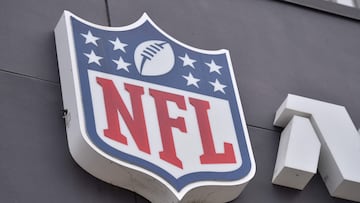What do we know about the class-action lawsuit facing the NFL?
After almost a decade, a class-action lawsuit against the NFL may be coming to the fore. Should the league lose, it could cost more than $20 billion.


Is it a case of “buyer beware”, or did the NFL and its partners try to pull a fast one on consumers? While the details of the suit filed against the league continue to emerge, what remains clear is that if this goes south for the NFL, it could be one of the most costly oversights we’ve ever seen.
What to understand about the NFL & the class-action lawsuit it’s facing
To begin with, this is a lawsuit that was initially filed back in 2015 which is to say, we’re talking almost 10 years worth of legal process to get to this point. As for the ‘why?’, what we can understand is that plaintiffs believe the NFL violated antitrust laws when it offered the “Sunday Ticket” to consumers. To be more specific, in 1994, the NFL started to offer “Sunday Ticket” as an option for out-of-market fans who wanted to watch their home team. For context, it’s important to understand that prior to that moment, a Lions fan who lived in California, likely didn’t have many viable options when it came to watching their home team. With the “Sunday Ticket”, that problem was solved.
A $21 billion monopoly lawsuit against the NFL is about to begin.
— More Perfect Union (@MorePerfectUS) June 5, 2024
The class-action suit alleges the NFL violated antitrust law and hurt consumers with its exclusive “Sunday Ticket” package.
The suit is a major challenge to the billions the league rakes in from media rights.
On the other hand, the crux of the argument is that plaintiffs believe the league worked in tandem with its network partners to list the highest price possible for the package. To that end, an attorney representing those who have taken the league to court, Amanda Bonn, stated most clearly that the NFL’s package is beyond the price range of the large majority of consumers. “NFL, Fox, CBS, and DirecTV agreed to make an expensive toll road that very few people would be able to afford,” Bonn said in her opening statement. “Every single competitor in this scheme benefited.”
What has the NFL said?
Where the NFL itself is concerned, the league has held to the idea that the price point relative to what was/is on offer should be self-evident. Indeed, the league’s attorney, Beth Wilkinson, argued that “Sunday Ticket” is expensive because it’s a premium offering. “The case is about choice. This is a valuable, premium product. Think about all the choices available to fans. We want as many people as possible to watch the free broadcasts,” Wilkinson said. Former NFL executive Steve Bornstein echoed a similar statement during his testimony on Thursday, explaining that “Sunday Ticket” was created so as to avoid any conflict with its network partners’ ratings. “The NFL always wanted ‘Sunday Ticket’ to be an additional package. That is how it was designed since its inception,” Bornstein said.
Related stories
Rhetoric aside, the truth is were the NFL to lose this case, the cost could be significant, to say the least. According to reports, plaintiffs are seeking $7.1 billion in damages, but due to the fact that this is in fact a federal antitrust case, the law calls for that number to be tripled, i.e., there is the possibility that the figure could jump to $21.3 billion. To be clear, the case encompasses every residential and commercial customer who subscribed to “Sunday Ticket” between 2012 and 2022, which puts the class-action number at nearly 2.5 million people.
Beth Wilkinson's leading the NFL's defense in the Sunday Ticket class-action lawsuit.
— COMMANDERS FOOTBALL (@HogsHaven) June 7, 2024
“The case is about choice. This is a valuable, premium product. Think about all the choices available to fans. We want as many people as possible to watch the free broadcasts,” said Beth…
Regarding the details, it’s understood that DirecTV had the “Sunday Ticket” package from 1994 to 2022. That has since been followed by YouTube TV which took over last season. Now, it’s important to understand that as much as the circumstances appear grim, there is still a long way to go. With that said, the idea that the case has made is this far after such a long time is an indication that things are serious. To that, we can only say as we always do, ‘watch this space.’


Complete your personal details to comment